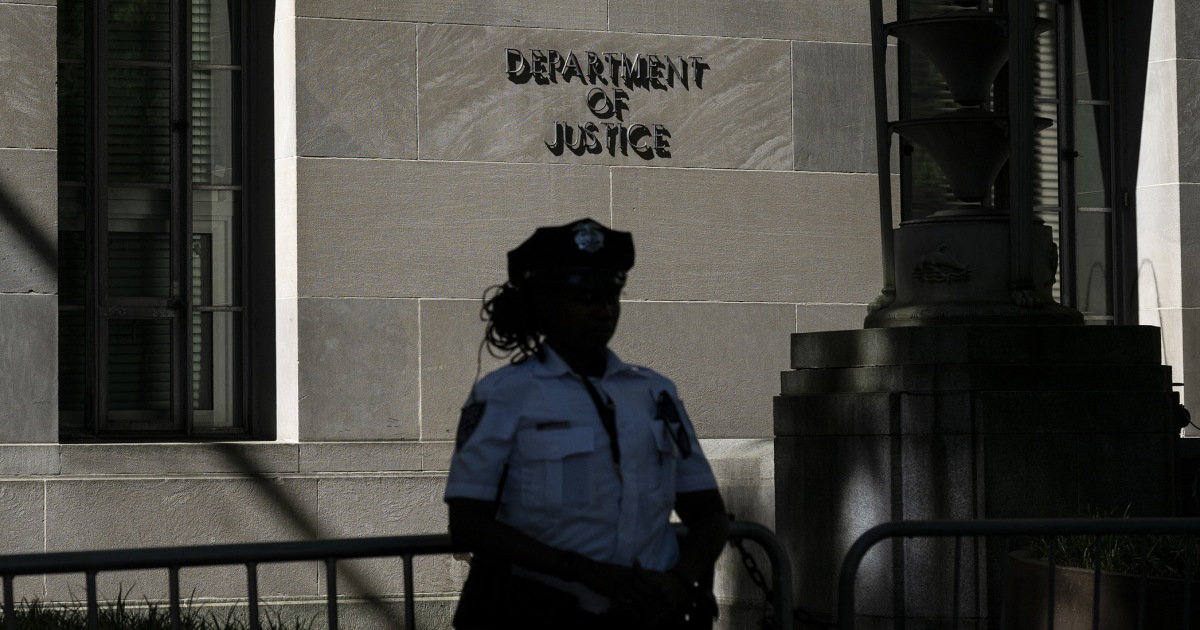The U.S. is making deep cuts in its greenhouse gas emissions as clean energy booms — but not enough to hit the target it set under the Paris Climate Agreement, according to a new analysis from Rhodium, a research company that tracks U.S. progress toward its climate goals.
Under the agreement, in which 194 countries pledged to limit global average rises in temperature to well below 2 degrees Celsius, the U.S. set a goal of reducing its emissions by at least 50% below 2005 levels by 2030. The Rhodium report projects U.S. greenhouse gas emissions will fall 32% to 43% below that threshold by 2030 and 38% to 56% five years later.
The report suggests that clean energy investment is accelerating rapidly, that economic growth no longer depends on fossil fuels and that President Joe Biden’s two climate initiatives — the Inflation Reduction Act and the Infrastructure Investment and Jobs Act — are helping push the pace of electrification.
But there are headwinds, as well: Power-hogging data centers have begun to push electricity demand higher, the Supreme Court recently issued a ruling that undermined federal regulatory power, and Democrats and Republicans are pushing radically different climate agendas as the election looms.
The U.S. set records last year for adding solar power and clean energy storage to the grid, the report says. Ben King, an associate director with the Rhodium Group’s energy and climate practice, said history is likely to remember the past few years as an “inflection point” in climate policy.
“This is where clean energy went mainstream,” King said. “It’s real business. It’s not your hippie neighbor with solar panels on the roof.”
However, the energy transition remains far too slow to reach U.S. emissions goals without new policy measures. The report assumes the pace will quicken, but to hit the upper end of Rhodium’s predictions for potential emissions reduction (43% by 2030), the rate of added clean energy capacity would need to increase several times over.
King said the renewable energy industry faces barriers that need to be smoothed out to get new projects built and operating more quickly.
“There have been some real challenges in the near term — challenges with building transmission lines, plugging these facilities into the grid and just getting the stuff to install, especially for wind post-Covid,” King said, adding that finding sites and securing permits remain problems, too.
The need for new sources of electricity is urgent. The report authors estimate that electricity demand will be 24% to 29% higher in 2035 than in 2023 as more vehicles and appliances go electric and as energy-intensive data centers are used to run artificial intelligence systems, mine cryptocurrency and power cloud computing. The estimated increase in demand is much higher than Rhodium predicted just last year.
Investment in clean energy, transportation and technology is growing rapidly. In the first quarter of 2024, firms invested $71 billion in the sector, a 40% increase from the same time in 2023.
Clean energy now accounts for more than 5% of private investment in structures, equipment and durable consumer goods, according to the report.
“It’s cool to see private capital really flowing into the clean tech space and hopefully finding some winners, some technologies, that are really going to help move the needle,” King said.
Much of the U.S. greenhouse gas trajectory hinges on the November election, the Rhodium report says. Republicans could seek to dismantle parts of the Inflation Reduction Act if they win the White House and take control of Congress, King said. In June, Donald Trump’s campaign told Politico he would pull the U.S. out of the Paris Agreement for a second time if he is elected.
Rhodium also expects a wave of challenges to environmental policies following the Supreme Court’s Chevron ruling, which newly limits federal agencies’ power. The next administration will shape the defenses to those challenges.
Evan Bush is a science reporter for NBC News.

 10 months ago
10 months ago
 (200 x 200 px).png)








 English (US) ·
English (US) ·